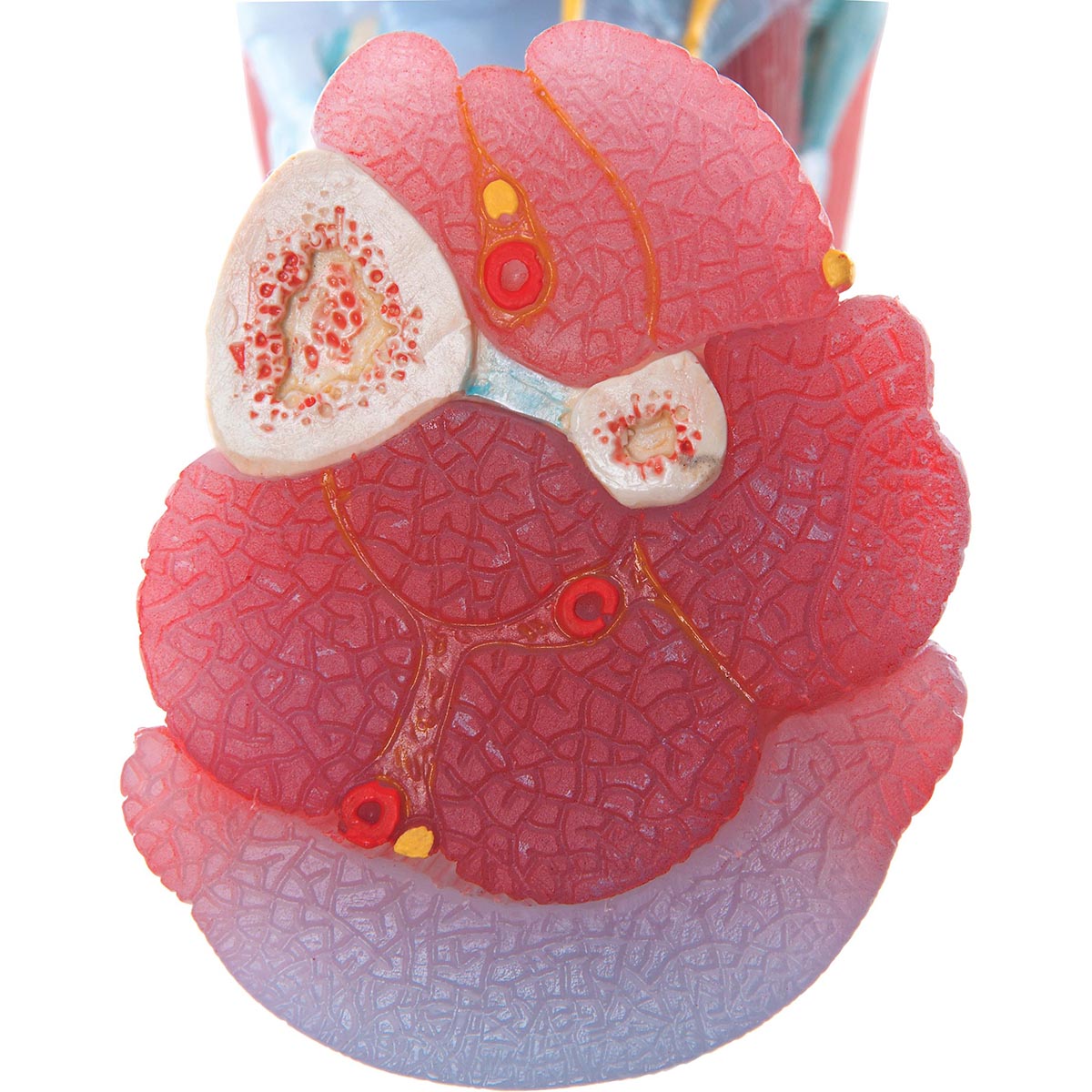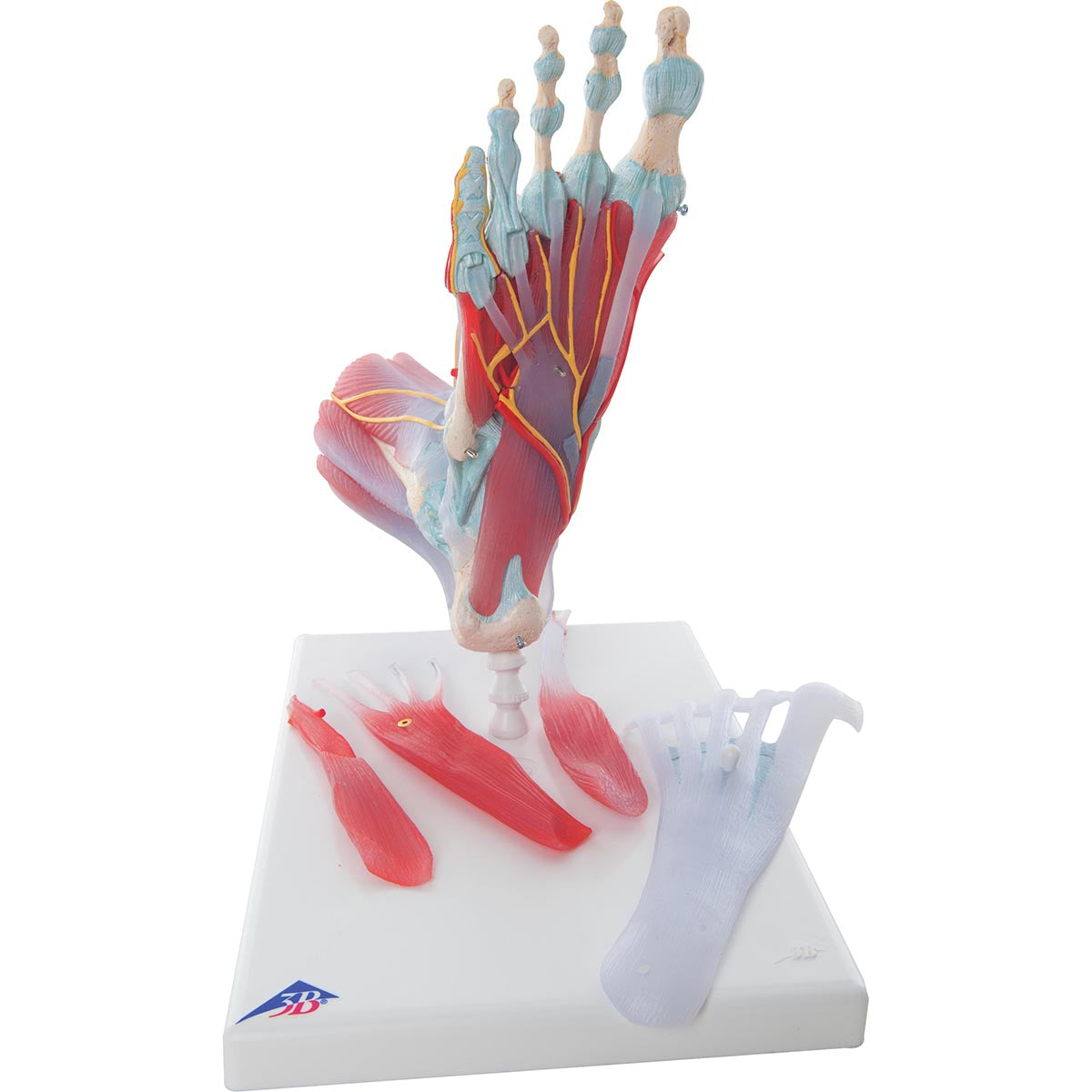SKU:EA-1000360
Complete foot model with ligaments, muscles, vessels and nerves - can be separated into 6 parts
Complete foot model with ligaments, muscles, vessels and nerves - can be separated into 6 parts
Out of stock
this product is made to order. To place an order please call or write us.Couldn't load pickup availability
This complete foot model shows many anatomical structures in the foot and in a significant part of the lower leg. Skin around the toes is not included, so their bones and ligaments are clearly visible.
The foot model is produced in the natural size of the foot, and the dimensions are 23 x 26 x 19 cm.
It weighs 1.2 kg and can be separated into 6 parts.
Anatomical features
Anatomical features
Anatomically, the model includes various structures such as bones, ligaments, muscles, tendons, arteries and nerves in both the ankle region, on the back of the foot, in the sole of the foot and in the toes.
The foot model really contains many anatomical structures - e.g. these:
The Achilles tendon and a cross-section of the musculature of the lower leg (above the ankle region).
In addition, you can follow the attachment of these muscles in the foot in a pedagogical way
The tarsal tunnel under the flexor retinaculum on the inner side of the ankle containing tendons, vessels and nerves
Muscles, tendons, nerves and blood vessels on the back of the foot
The superficial aponeurosis plantaris (fascia plantaris) and the muscles in the sole of the foot, which are divided into the big toe box, the central box, the little toe box and spatia interossea
Bones, ligaments, tendons, vessels and nerves in toes (distributed)
Product flexibility
Product flexibility
In terms of movement, the model is not flexible. The model cannot be used to demonstrate movements in the joints of the foot.
Clinical features
Clinical features
Clinically, the model is ideal for understanding disorders such as Achilles tendon rupture, heel spur/plantar fasciitis and tarsal tunnel syndrome.
This complete model is also ideal for understanding toe fractures, luxations (slip joints) in the toes and foot deformities such as hallux valgus (big toe bunion), hallux rigidus, hammer toe, flat foot, clubfoot and metatarsus varus.
The model can perhaps also be used to understand disorders such as osteoarthritis in the foot (arthrosis) and rheumatoid arthritis (rheumatoid arthritis).
Share a link to this product






A safe deal
For 19 years I have been at the head of eAnatomi and sold anatomical models and posters to 'almost' everyone who has anything to do with anatomy in Denmark and abroad. When you shop at eAnatomi, you shop with me and I personally guarantee a safe deal.
Christian Birksø
Owner and founder of eAnatomi ApS





